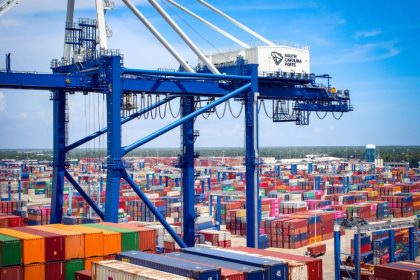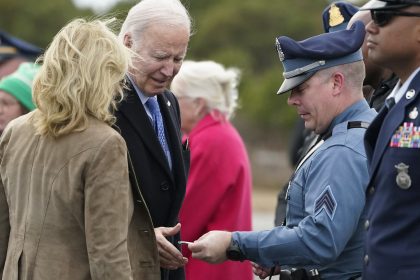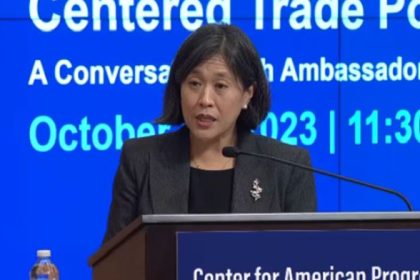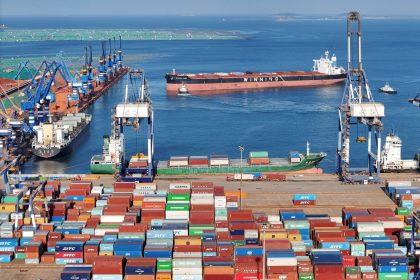U.S. and Mexico Fail to Resolve Dispute on Trade Rules for Cars

The U.S. and Mexico failed to resolve a dispute over trade rules for cars during a meeting last week, a development – or lack of one – that appears capable of severely straining relations between the two countries a year after the new USMCA trade pact took effect.
U.S. Trade Representative Katherine Tai and Mexican Economy Minister Tatiana Clouthier reportedly discussed the topic Thursday afternoon in Washington but could not reach a resolution.
Tai told Clouthier that the U.S. “remains committed to the full implementation of the USMCA, including the strong auto rules of origin,” her office said in a statement Thursday, without elaborating. The pair “agreed to stay in touch in the months ahead,” it said.
“The rules of origin have not been interpreted the way it was agreed at the moment we signed the agreement,” Clouthier told reporters in Washington Friday.
“We need more dialogue to understand the problems that can be caused if the interpretation continues to be the one that the previous administration had taken,” Clouthier continued. “That’s where we are at this moment.”
The Office of the U.S. Trade Representative did not respond to an email from The Well News seeking comment or information, but the background on the controversy is this:
The U.S. is currently butting heads with Mexico and Canada over rules for cars shipped across regional borders.
The dispute focuses on how to calculate the percentage of a vehicle that comes collectively from the three countries under the U.S.-Mexico-Canada agreement.
The deal took effect last July, replacing the North American Free Trade Agreement, or NAFTA, but the new rules of origin are designed to be phased in over several years.
The U.S. insists on a stricter method than Mexico and Canada believe they agreed to, for determining the origin of certain core parts including engines, transmissions and steering systems in the overall calculation.
That makes it harder for plants in Mexico and Canada to meet the new threshold of 75% regional content, up from 62.5% under NAFTA, in order to trade duty-free.
Mexico and Canada are each said to be considering filing a formal complaint against the U.S. under the year-old USMCA, which could result in a dispute panel which would hear arguments from the nations.
In the meantime, the Mexican Economy Ministry has released a statement that said in part, “Not abiding by USMCA rules may potentially disrupt the operations of the North America automotive industry.”
Cloutheir’s visit wasn’t all about cars and the origin of parts. She and Esteban Moctezuma Barragón, Mexico’s Ambassador to the U.S., also met earlier last week with Zippy Duvall, president of the American Farm Bureau Federation.
Afterwards, Duvall released a statement in which he said, “we reiterated our mutual commitment to the USMCA and discussed concerns about seasonal produce imports and exports on both sides of the border.”
Among the subjects discussed during the session were recent decisions by the Mexican government that the Farm Bureau believes threaten the strong trade partnership between the U.S. and Mexico.
“I expressed the deep disappointment of America’s farmers and ranchers in Mexico’s decision to limit use of technologies – and food produced using such technology – that increase agriculture’s sustainability and ability to meet the growing demand for food,” Duvall said. “I urged Mexico to return to a science-based approach to corn produced for both human consumption and animal feed.”
Clouthier conveyed rising concerns in her country related to increased U.S. interest in country of origin labeling of meat.
“Beyond agricultural trade, I conveyed the seriousness of the situation for farmers and ranchers along our southern border who face an influx of migrants crossing their properties,” Duvall said. “I shared the heartbreaking stories about migrants left abandoned, dangerous smugglers on the run and the concerns of farmers and ranchers for their families’ safety and their farms’ security when homes are raided, fences are destroyed and water supplies are compromised. I was pleased to hear about efforts in Mexico to slow migration along their southern border from Central and South America and to increase border security along their northern border. Still, more must be done to address this crisis.”
























